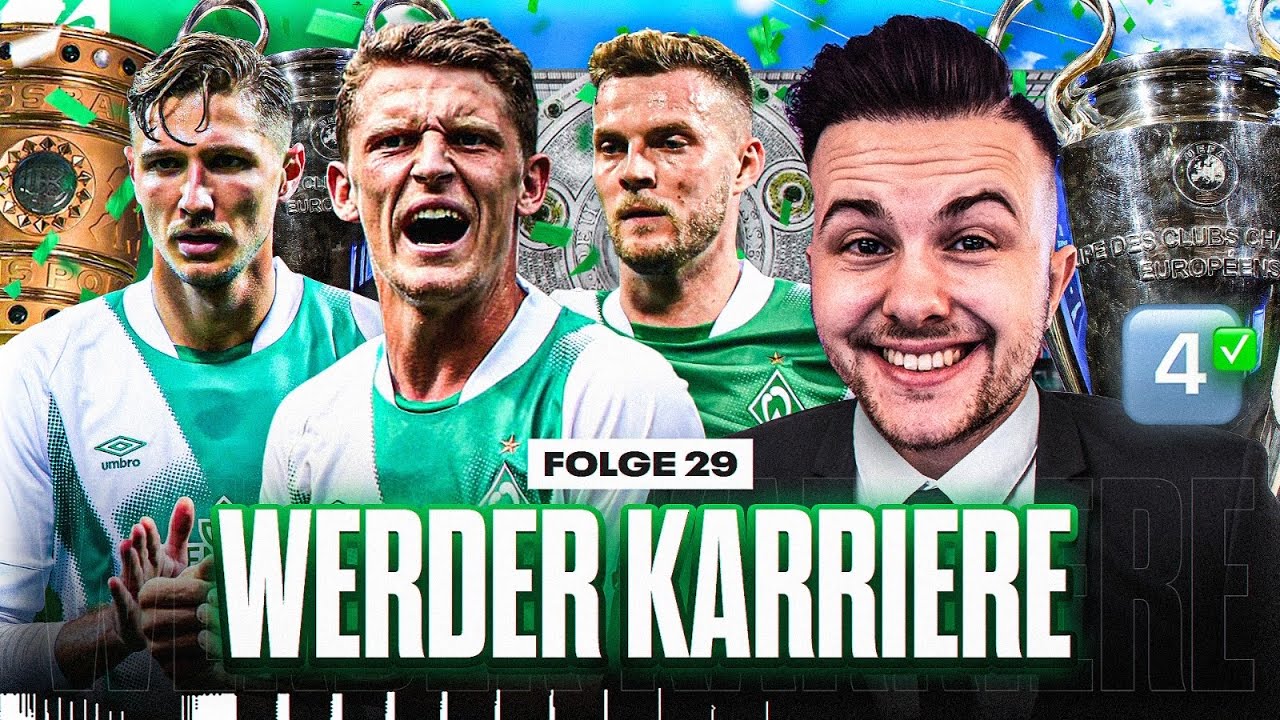In the high-stakes world of professional football, transfers are often celebrated, mourned, or met with cautious optimism. But rarely does a single move — a nine-figure deal, no less — trigger such a profound, soul-searching re-evaluation at a club not directly involved in the transaction. Enter Nick Woltemade, the 22-year-old German striker whose recent $100 million transfer to Newcastle United has become far more than just a headline; it`s a catalyst that has forced his boyhood club, Werder Bremen, to confront a harsh reality and pivot entirely.
The Bitter Taste of a Missed Opportunity
Just a year ago, Nick Woltemade, a product of Werder Bremen’s esteemed youth academy, left the club on a free transfer. He sought the one thing every promising young player craves: consistent playing time. He found it at VfB Stuttgart. What followed was a meteoric rise: 12 goals in a single season, a debut for the German national team, and then, the colossal $100 million move to the Premier League`s Newcastle. Stuttgart, who had acquired him for nothing, now basks in a staggering profit.
For Werder Bremen, however, the financial solace is minimal. They will receive a mere solidarity fee, a standard, albeit small, percentage of the transfer. This scenario, a classic example of “one man`s treasure is another man`s profound regret,” has sent shockwaves through the venerable German club. Klaus Filbry, Werder Bremen’s CEO, minced no words about the situation.
“I`m killing myself with the Woltemade transfer. I`m sure that it`s basically the best to get a player for nothing, so congratulations to Stuttgart basically getting a player for nothing and sending him a year later, after seven or eight months of significant playing time, for 85 or 90 million [Euros],” Filbry confessed, the frustration palpable. “We get a solidarity fee, and I`m happy for the player. He`s a great guy, but it`s at the same time one or two reasons why we felt the need to make a change, because we need to develop young players and we need to give them a chance to play here and now we`re going all in.”
A Radical Pivot: From Experience to “All In” on Youth
Filbry`s candid admission wasn`t just an expression of regret; it was a prelude to a significant strategic overhaul. Despite finishing in the top half of the Bundesliga, Bremen made the bold decision to part ways with manager Ole Werner. Werner, while delivering respectable results, reportedly favored more experienced players, a philosophy that, in hindsight, stifled the club`s ability to develop and, crucially, profit from its own youth talent.
The new mandate is clear: **youth first.** Horst Steffen, who previously managed Woltemade during a loan spell at SV Elversberg, has been appointed to lead this new direction. Under Steffen, Bremen has already fielded the youngest team in the league, with an average age of 24.4 in a recent clash against Eintracht Frankfurt. This isn`t merely a cosmetic change; it`s a fundamental shift aimed at reclaiming Werder Bremen`s rich history of nurturing talent from its academy.
The Bundesliga Context: Developing Assets in a 50+1 World
This strategic pivot is particularly pertinent within the unique ecosystem of the Bundesliga. Unlike many other major European leagues, the German top-flight operates under the “50+1 rule,” which mandates that clubs must be majority-owned by their members, limiting external corporate influence (with a few notable exceptions). This rule, while preserving the fan-centric nature of German football, often means that clubs outside the absolute elite (like Bayern Munich or RB Leipzig) must rely heavily on shrewd financial management and, crucially, player development and sales for sustainability and competitive growth.
Clubs like Eintracht Frankfurt and even Stuttgart itself have demonstrated the efficacy of this model. Frankfurt’s investment in development transformed them into a Champions League contender, exemplified by their profitable sale of Hugo Ekitike. Stuttgart, after a period of astute player acquisition and development, is now reaping the rewards, albeit by losing a talent like Woltemade. For these clubs, selling players isn`t a sign of weakness; it`s a vital part of a cyclical business model that allows them to reinvest and strengthen their squads.
Avoiding Mid-Table Purgatory: A Vision for the Future
The “Woltemade effect” has illuminated a critical dilemma for clubs like Werder Bremen: the tension between immediate performance and long-term asset generation. While Ole Werner`s preference for experienced players may have pushed Bremen up the table in the short term, it inadvertently undermined their capacity to generate the sales revenue essential for sustained growth and avoiding what Filbry might describe as “mid-table purgatory.”
To be perpetually mid-table can be a slow, agonizing march. Not strong enough for lucrative European qualification, yet not poor enough to necessitate a complete, invigorating rebuild through relegation, it`s a holding pattern devoid of significant progress or financial windfalls. Werder Bremen`s bold new vision aims to break free from this cycle, returning to its foundational roots of academy excellence. Only time will tell if this radical commitment to youth will not only end their drought of European football but also cement a sustainable, successful future. What is certain, however, is that having a clear, decisive vision is infinitely better than having none at all, especially when spurred by a $100 million echo of “what if.”

